Over a year has passed since Russia invaded Ukraine on February 24th, 2022, with both sides suffering enormous casualties. Talia Baroncelli speaks to retired Col. Lawrence Wilkerson about the credibility of various reports on the Nord Stream pipeline sabotage, noticeable tensions between Wagner Group’s Yevgeny Prigozhin and Russian President Vladimir Putin, as well as possible steps towards achieving a negotiated settlement.
Talia Baroncelli
Hi, I’m Talia Baroncelli, and you’re watching theAnalysis.news. I’ll shortly be joined by a friend of the show, Col. Larry Wilkerson, to speak about the sabotage of the Nord Stream pipelines, as well as the one-year mark of Russia’s invasion of Ukraine. But first, please go to our website, theAnalysis.news, and donate to the show; that way, we can continue making this content. You can also sign up to our email list to ensure that you receive all upcoming episodes, and go to our YouTube channel, theAnalysis.news, and hit the bell. The bell ensures that you’re notified every time a new episode drops. If you don’t hit the bell, you might not be seeing some of the content that’s coming out, and you’ll miss some of the episodes. So please hit the bell on our YouTube channel. Back in a bit.
Joining me now is Larry Wilkerson. He’s a retired U.S. Colonel and served in the U.S. Army for 32 years. He was also the Joint Chief of Staff to Secretary of State Colin Powell between 2002 and 2005. He also worked for Colin Powell when Powell was the Chairman to the Joint Chiefs of Staff during the Gulf War. Thanks so much for joining me, Larry.
Col. Lawrence Wilkerson
Thanks for having me, Talia.
Talia Baroncelli
Let’s talk about these recent articles on the attacks on the Nord Stream pipelines. The Nord Stream pipelines were sabotaged on September 26 of last year. Of course, Seymour Hersh, he wrote an article on his substack basically alleging that it was the U.S. who was behind the attacks. I think that is a very likely explanation. There was only one source, and since then, the U.S. government has obviously denied these claims. And probably because of the publication of that article, they leaked some information to the New York Times, saying that, “of course, it wasn’t them. It wasn’t the Americans. It wasn’t the British, but it was most likely a pro-Ukrainian group that was behind the sabotage.” I was wondering what you think of those claims.
Col. Lawrence Wilkerson
I think they’re bogus. I think they’re completely bogus. I would have thought that the CIA could gin up a better story than that. After all, I’m the one that dealt with their story, so to speak, with regard to Iraq’s WMD [Weapons of Mass Destruction]. I have to say that the October 2002 National Intelligence Estimate detailing that story was not a bad story in many respects. In fact, most of Congress believed it, too; those that read it anyway. So that’s my appreciation of the Ukraine theory, that it was a cover story put out by the agency.
More important to me is just thinking about this in a rational way. Why would anyone else really benefit from doing something as was done to those pipelines? Why would they benefit more than the United States? That’s the point that brings me back to the two weeks before Sey came out with his article. I knew nothing of this article. Sey and I had dinner once or twice, but I didn’t know anything about what he was working on. I’d already postulated this to several people because I know about the hard hats down there. I know about their capacity. I know what they are trained to do and what they do in war, for example. I know they rescue our submarines when they’re hurt and down below the ocean at great depths. They’re really professionals. I said, “I bet I know who did the Nord Stream pipeline.”
Now, that’s no confirmation; that’s just speculation. But I am a military professional, and I do think in strategic terms, and I would say the odds are the United States did it. We benefit most from having done it, and we have the capacity to do it. When you talk about capability, you’re limiting it, really limiting it to China, Russia, maybe the U.K., but that’s probably it outside the United States. This is deep water stuff, and it’s significant activity, particularly if Sey is right about the delay. I can’t frankly believe that they got away with that long delay without contamination of the explosives or something like that. Luck plays a role in some of these things too.
The most serious thing about it, in my view, is we are really playing with the most important relationship we have in Europe, and that’s the relationship with Germany. Not France, not the U.K., not NATO as a whole, but Germany. The Bundestag is probably now about 50/50 on this. Germans in a recent poll, 62% of them said the war should have been over yesterday. Energy costs are now 9 to 10 times what they were when Russia was pumping gas. People say, “well, they weren’t pumping any before.” I’m sorry, now they can’t pump any.
Another thing, the energy that we are selling them, the gas that we’re selling them, largely from the Permian Basin, is much dirtier. That means something to the Germans, who are probably the European country doing the most about meeting the climate crisis and getting off fossil fuels. Ruhr valley coal is about all they have left to fight politically.
I’m really worried about the relationship between Berlin and Washington. Even without the cold winter, had it been a really bitter winner, this would be even more dire. I’m worried about it over the next six months if we don’t stop some of the things we’re doing. For example, we are trying to wean them off China. We’re trying to wean Germany off its principal trading partner in the world. This is idiocy. But so far, the Germans have been, as they were with the Nord Stream operation, cooperative. I don’t think that’s going to last. So this is a serious problem a brewin.
Talia Baroncelli
Well, on that particular issue, on the Nord Stream sabotage, the German government has been very cautious in terms of what it’s confirmed and not confirmed. They’re basically saying that they’re not going to say who did it. But Germans–
Col. Lawrence Wilkerson
Don’t blame them.
Talia Baroncelli
Sorry.
Col. Lawrence Wilkerson
I don’t blame them.
Talia Baroncelli
Right, of course. I mean, that would be an instance of escalation if they were to point fingers. But–
Col. Lawrence Wilkerson
Look at it this way. If I were the chancellor, I’d go to the devil I knew rather than the devil I might not know that well and probably suspect of having ulterior motives, Putin. The devil I know is in Washington. I’ve lived with him since 1945. I know him pretty well. The devil I don’t know raped, pillaged, and plundered, and maybe by some historian’s estimates, raped every woman in Berlin when they took Berlin. That’s a totally different devil in a real sense. So if I’m going to support the devil on either end of the spectrum, it’s probably going to be Washington– if I’m a German. If I’m a German.
Talia Baroncelli
Germans are in an incredibly difficult position. I think some of the reporting on the pipeline has been very bizarre because Die Zeit, a German newspaper, along with ARD, they were saying that German prosecutors have proof that the company from which the saboteurs rented the boat was based in Poland but was potentially owned by two Ukrainians. This is also really bizarre.
Col. Lawrence Wilkerson
This is what you do, though. If you put out a good cover story, even if it’s bizarre, you fill it full of details like this. I’m prejudiced. I’m biased. There’s no question about it. They took me down the bowels of the CIA, and they showed me satellite photography. They moved satellites even to make me believe that what I was seeing was accurate. That’s incredible. That’s very costly to do that. It takes a presidential decision to move a satellite out of its normal orbit.
Talia Baroncelli
You’re talking about the alleged truth that there were weapons of mass destruction in Iraq.
Col. Lawrence Wilkerson
Absolutely. They wanted me to see these ammunition supply points. They would put a template on, and it would say, “12 indicators of special weapons, chemicals or biologicals, 12 indicators. Look, there are 10 of them that are confirmed by this satellite photograph. Ten out of 12 is enough for us to say they’re there.” Then we’d look at another one and the same thing. They even showed me live satellite photography, if you will, with the inspectors pulling in and the ammunition supply point I looked at the previous day, and they confirmed it was from special weapons, would be clean. Because why? The inspectors were pulling in, and someone had leaked, so they cleaned it up for the inspectors to see that there was nothing there. This is the detail you put into false stories.
Talia Baroncelli
Do you think that, eventually, we will find out who was behind the Nord Stream attacks?
Col. Lawrence Wilkerson
No. No more so than we’ll find out who really killed Martin Luther King, who really killed Bobby Kennedy, who really killed Jack Ruby, and who really killed JFK. These are imponderables, I don’t think, because governments will go out of their way to obfuscate the path of even the best researcher. Government has a lot more tools and money than the best researcher in the world. They just do.
Talia Baroncelli
It is important to note, though, that none of these reports, whichever ones you believe are credible or not credible, none of them are pointing the finger to Russia and saying that Russia was behind these attacks because why would they sabotage their own pipelines? There were a lot of people at the time who were questioning some narratives which were pointing the finger at Russia, saying Russia was behind it. Of course, they were labeled as being pro-Russian, pro-Putin, useful idiots, that sort of thing. But now those people are quiet.
Col. Lawrence Wilkerson
Well, I could weave a really Machiavellian story about how Russia might think that it could gain something eventually by the disruption of NATO, causing pressure between Berlin and Washington in particular or whatever, by doing it and then asserting that the United States had done it. But I don’t follow that logic as well as I do the logic of Washington.
Talia Baroncelli
Right, and if we did have credible proof that it was Russia, that would have already been on the front page of every newspaper by now. They would have–
Col. Lawrence Wilkerson
Absolutely. They would have leaked that in a heartbeat. Top secret, code word, out the yin yang, they’d have leaked it. We leak anything that helps us politically.
Talia Baroncelli
Of course, whether it’s true or not.
Col. Lawrence Wilkerson
Yeah.
Talia Baroncelli
Well, we’ve surpassed the one-year mark of Russia’s invasion of Ukraine. It’s quite interesting to see how certain people who were initially very supportive of the U.S. and NATO supplying Ukraine with weapons they’ve now maybe taken a slightly different more nuanced stance. I’m thinking of the liberal historian Stephen Kotkin, who’s a historian and specialist on [Vladimir] Lenin and Russia, and of course, on Putin. He’s been saying recently that there’s no good outcome to this war, but it would be more beneficial to Ukraine to join the E.U. if that means negotiating with Russia and potentially ceding some of its territory, giving up its territorial integrity. What do you say to that?
Col. Lawrence Wilkerson
I say that the points that I outlined a couple of weeks ago and actually over two months ago are still relevant, and they ought to be the framework or at least part of the framework of a negotiated settlement. Those points are very simple, difficult, perhaps, to achieve, but diplomacy is more lose-lose than it is win-win. You just try to not lose too much. You need to say to Russia, “Crimea is yours.” You need to say to Russia, “all those territories that have Russian citizens in them, to some extent, if not a majority, will have a referendum, and they’ll be supervised by the UN, OSCE, and Russia. Everybody can come in and supervise them in whichever way they vote. Neutrality, Russia or Kyiv, that’s the way they go. If we need a DMZ, we’ll shape a DMZ, and we’ll put UN troops in there. We would like you to recognize Kosovo because we’ve just recognized Crimea as being part of Russia. We would also like you to sign an agreement with us that everyone else will sign too. We would like you to provide funds. We’re going to demand the funds from Washington and NATO to rebuild Ukraine’s infrastructure so that within 8 to 10 years, it can, in fact, apply for E.U. membership and become a member because it can’t with its devastated infrastructure. It’s got to get– oh, by the way, we’re going to rebuild this infrastructure so it’s climate sensitive. It’s going to be climate resilient. It’s not going to be the standard crap that we put down and then have something come along with regard to the climate and tear it up.”
The other things that you have to discuss are, to me, there will be no NATO membership. You’ll say that outright. There’ll be no NATO membership for Ukraine. Three years ago, I said the best position for Ukraine is neutrality. Declare neutrality and tell Washington to go to hell and tell Moscow to go to hell. Then turn to the E.U. and say, help me, and whatever. Don’t help me with arms and tanks and airplanes. Help me with economic help and financial help; that’s what they need more than anything else. Of course, they were so fricking corrupt. I was dealing with them when I was at the State Department. They were just bandits, criminals all over the government, from Yulia Tymoshenko to the guy who had his face all messed up by the nitrogen pill or whatever it was that someone fed him, probably his own people.
Ukraine needs to get its act together, and that’s the time period to get it together; when you’re rebuilding the infrastructure, and you’re providing them with the funds and the construction capability to do it. All of this can be worked out, but we need to stop it. We need to stop the war. There are people now who are talking, sanely talking about how we are on the precipice with regard to nuclear weapons use.
Here’s the thing that frightens me, too. One of my contacts on the Bundestag said to me the other day that their intelligence is the people who would take over were Putin to collapse, were he to fall, were he to be kicked out, are worse in terms of their approach to Ukraine. They won’t hesitate to use low-yield nuclear weapons. They won’t hesitate to be as brutal as they can be. They will bring it to a close, and the close will be pyrrhic at best. That’s what’s waiting behind him. In these negotiations, the longer you stall them, the longer you put them off, the more precarious you make Putin’s position. He comes to the negotiations, and any concession that he makes that’s perceived as a concession by these people, and this includes about half of the Duma, will bring him down. Then they will take over, and the negotiations will seize. We need to talk, and we need to talk yesterday. We need to have the parameters, something roughly like what I just described. No NATO membership. E.U. membership over time. A lot of help to get to that point. Crimea is Russia’s. Hey, recognize Kosovo, won’t you? Those sorts of things.
Talia Baroncelli
Well, those are really, really difficult things. Of course, we live in a tricky, complicated world. I mean, if you were to establish a demilitarized zone, Russia is a part of the Security Council, and they could veto that. How is that an option that you could see working?
Col. Lawrence Wilkerson
I don’t think they would if it were in their interest to do so. If the negotiations were really carefully done, well done, and Putin has the latitude, that’s what’s worrying me more and more. Does he have the latitude to make a concession here and there? Then they would welcome that because then that would relieve them, and they are beleaguered to– look at what’s happening right now. The casualty count is, I suspect, quite high. That would relieve them of having to do these sorts of things that they’re doing right now. The UN force and the DMZ force would do them.
Now, there is a problem, and a Rand study, for example, I think highlights this. This might be a Cyprus, a Kashmir, an Indian-China border thing, or a DMZ in Korea thing. We may have 75 years plus before that is ever taken down, disestablished, disassembled, and you have a clear-cut Ukraine and a clear-cut Russia and a clear-cut [inaudible 00:18:14], and so forth. Well, if that stops the killing, then so be it. We have another DMZ in the world, another zone of no conflict that is monitored by other parties than the bordering countries. I mean, it happens. It’s happened. What are we doing in Cyprus right now? Seventy-five years, I think, we’ve had the one in Cyprus.
Talia Baroncelli
Well, it seems that Putin doesn’t have the full support of the people around him or of the military because– at least this is my perception– there does seem to be certain factions. In the military, for example, you have the military elite, but you also have the Wagner Group. [Yevgeny] Prigozhin, who’s the head of the Wagner Group, is leading certain military operations in the east of Ukraine. This was recently, he was publicly calling for Putin to give more ammunition to the Russian troops or the Wagner troops who are in Ukraine. That was probably perceived as undercutting Putin publicly, and so he’s been cut off. I don’t really know what that means. What do you make of all these tensions? Can these tensions within the Russian military, as well as between the Russian military and the Wagner Group, continue, or will that lead to some reshuffling?
Col. Lawrence Wilkerson
It may indeed. It may lead to some major figures disappearing from the scene. The Wagner Group is really embroiled now in the Sahel in Africa, too. The French have pretty much just consigned it to them. The French are basing in Côte d’Ivoire now, as I understand it, and they are going to operate out of Côte d’Ivoire in order to handle what they consider to be really threatening terrorist outfits in that region. There’s not going to be a whole lot because the French don’t have that much capacity to do this.
The Sahel has been abandoned, really, to the Wagner Group, which is working with all these governments who are using their efforts, their money, and their arms to oppress their own people, which is what they did with our money and our arms when communism was what we were fighting. The Wagner Group is spread out now to the tune of North Africa, Ukraine, and maybe some other places. I don’t know whether this problem in Ukraine means that they’re going to be curtailed elsewhere, too. I don’t see how they can do that.
We started this, really, if you look at it, with Erik Prince and the people that we allowed to become mercenary warriors in Iraq. Well, Putin took a look at that and said, “I can’t recruit sufficiently, so I’ll just create a modern volunteer army, if you will. I’ll pay them wages and get them out of prisons and these sorts of things, too.” This is not, in my view, this isn’t anything new. The British East India Company and others had these forces around them as they established empires in the past. But it is taking on a bloodiness and a brutalness that perhaps it didn’t have in the past because of new technologies. These people can get the technology just as well as the armed forces that are constituted can get it. It’s a bad development, in my view, to have all these private soldiers out there, whether it’s Erik Prince or the Wagner Group, doing state missions. Russia now has taken that to a fare-thee-well.
Talia Baroncelli
Well, that also begs the question, who is ultimately accountable for that? So if there are certain war crimes that are being committed by these forces, do you then charge Russia with those war crimes? It’s not like they’re under the jurisdiction of the International Criminal Court, and I doubt they would ever allow themselves. You know that private companies technically do need to respect the United Nations’ human rights standards for businesses, and these are businesses that are on the battlefield. There are certain human rights standards that they’re supposed to respect, but of course, they most likely violate them.
Col. Lawrence Wilkerson
From what I’m hearing about the operations in North Africa, they don’t respect much of anything except the bullet, and that’s their most persuasive tool. We saw it with Erik Prince’s guys if you remember–
Talia Baroncelli
Blackwater–
Col. Lawrence Wilkerson
There was some accountability there, but not a whole lot, and not the accountability that would send signals that need to be sent as you’re intimating to these other groups. You will be punished. You will be held accountable. Difficult to do, though, as you pointed out, even with the auspices of the International Criminal Court, it’s still difficult to do. How do you haul them before the bar, so to speak? Do you haul them with their weapons on them? Or do you say disarm in the foyer, please?
Talia Baroncelli
Who do you think has the military advantage right now? Russia clearly is a massive country with a huge amount of resources. But there have been reports of something like a million uniforms being stolen from the warehouses, of families needing to even pay for the weapons and ammunition that certain soldiers need. I don’t know how accurate these reports are. It’s hard to say in the fog of war. It does seem like some people in the Russian population are starting to doubt Putin’s propaganda. Russia is not a monolith. Of course, there are certain people who buy into his narrative and support him, and then there are others who maybe are opposed to him, but because of the risks of protesting, they might not be going out on the streets. I think some of them would doubt the two main narratives that he justifies what he calls a special military operation. This idea that they’re denazifying Ukraine, but also going in because of the threat of NATO. If anything, this war on Ukraine has increased support for NATO, so it’s actually gone against that initial reason to go to war. I don’t believe the denazification narrative. Of course, there are Nazis in Ukraine. There are Nazis in Russia. There are Nazis in the Donbas. There are Nazis in Germany and other parts of Europe.
Col. Lawrence Wilkerson
There are Nazis in the United States.
Talia Baroncelli
Of course, I don’t think that Ukraine is a bastion of Nazis. There is an issue that there are people who are Nazi sympathizers who are fighting in the military. I do think that is a legitimate issue to discuss. I think that he was exaggerating those claims. I mean, there are a lot of gray areas here and things that we can problematize. I just don’t know if Russia can continue like this for years on end. I mean, they have the resources, but I don’t know if the people will actually buy into these phony narratives for years on end.
Col. Lawrence Wilkerson
Well, I could turn the tables and point towards other countries, including our own, and say, how the heck has ostensibly a democratic republic waged war from 9/11 to the present against several countries, two or three of them significantly, to the tune of killing hundreds of thousands of their citizens. People aren’t in the streets enraged. Enraged! They aren’t. So I have a hard time thinking that Russians are in the street enraged over this conflict in any significant amount, or at least in amounts that would keep them from doing what they want to do. You always have the clear and present danger of they own the nuclear weapons, not the people. If someone wants to use a nuclear weapon, they’re going to use a nuclear weapon. If they want to use several of them, they’re going to use several of them.
Just yesterday, I listened to an otherwise sane person talk about how when you use these small yield weapons, and you use them properly, whatever the hell that means, then you don’t really do all that much. You just let the genie out of the bottle, and that’s really scary. You hope that freezes the other side and maybe brings some talks about, or at least a stalemate that you can deal with. I have no doubt that this man is probably right in terms of some of these Russians would, in fact, use them. I have no doubt we would use them. No doubt whatsoever that we would use them. If we were in a situation where we felt like we had to use them, it was near existential, we’d use them. After all, don’t forget Hiroshima and Nagasaki were the first use of nuclear weapons, and we did it. Now the scholarship is finally catching up, and we’re understanding that one of the reasons we did it was to dissuade [Joseph] Stalin from leaving Berlin and coming to the English Channel, more even than to convince the Japanese to surrender. There’s no question in my mind that this is a dangerous situation, and it’s dangerous deeply so because both sides, so to speak, actually more than two sides have nuclear weapons in this fray. It needs to stop.
Talia Baroncelli
There is something that makes me wonder, and that’s if Putin actually wanted to use a nuclear weapon, he does have to face the pecking order of the military. Whereas in the U.S., the president has the codes, and they could just do it; that’s my understanding of it. Whereas in Russia, I feel like there would be more opposition from the military because of the military structure or people who would maybe prevent Putin from going ahead with that order. Do you think that’s accurate, or is that not substantiated?
Col. Lawrence Wilkerson
It just depends on the occasion, the crisis, and the people in the positions. There are very few instances to use as examples in our country, but they are there. In most cases, if the civilian is thinking about nuclear weapons, the opposition comes from the military, and it comes strenuously from the military.
On one occasion that I’m aware of and have studied, the opposition generated at the top and was very much pushed by a particular sect in the military. We’re fortunate in that our system allows both pressures to develop. Normally, you’re going to have– one of those is going to say, “I’m not going to do that.” Even to the point where the head of strategic command, for example, might say, “I’m walking, Mr. President. I’m out of here. I’m not doing that.” Particularly if the president were to order a first strike, I’m not even sure that we would have military officers in our military who would follow the orders to execute a first strike. God forbid that should ever come to that. That’s one reason why a lot of the military weren’t all that worried about Donald Trump because they knew there were all these cushions in there, all these layers in there.
Now in Russia, I’m not that familiar with their chain, but from what this gentleman was telling me the other day, it would be almost de rigueur for them to say, “okay, we’re going to use a small nuclear weapon because we’ve already said this is what we’re going to do. Our doctrine already says this is what we’re going to do. We’ll use a small nuclear weapon to take the situation right now that seems intractable for them.” Boom. The problem goes away. Maybe you’ve taken a few casualties yourself, but if you do it carefully, you haven’t it. Then you’ve presented to the rest of the world, in particular to the other side, being NATO, Washington, and Kyiv, you want to go this way, or do you want to talk? I’m offering you talks and not going any further. What are you going to do if you’re the United States president? What I fear is that Biden will say, “shoot three back at him or whatever. Pick some targets. I want some targets. Give me some targets now. I want to put a small-yield nuclear weapon.” First thing he’s going to have as a problem with is you’re going to have to get it into position. Putin doesn’t have to worry about that.
This is a road we don’t want to go down. This is a road we have been down. I’ve been down it in speculation, in war games, in doctrinal development, in escalation theory, and so forth. You don’t want to go down that road. In reality, I’m telling you, you just don’t want to go down it. But there is a possibility that if we make it so that it’s existential for Russia, they will go down that road.
Talia Baroncelli
It’s important to speak about the global response to Russia’s invasion of Ukraine. Obviously, Western countries have expressed unwavering support for Ukraine and have fully condemned Russia’s invasion, whereas some other countries in the Global South, for example, smaller countries, have been more reticent or unwilling to full out condemn Russia, or they’ve remained neutral, especially at the United Nations General Assembly, or we saw this recently expressed at the Munich Security Conference in February of this past year. I’m assuming a lot of this has to do with these countries’ distrust in what’s often called the rules-based liberal order, which is repeated time and time again. Yet if this order really exists, I mean, there is international law, but unfortunately, international law has not always been enforced. We’ve seen the U.S. do similar things that Russia is currently doing, such as its invasion of Iraq and Afghanistan. The U.S. was never, and the countries involved in those invasions, they were never brought to justice or to account for some of those war crimes committed and for invading a sovereign nation.
It’s incredible that when the ICC, the International Criminal Court, was founded, this is the time of the Bush administration, the U.S. decided not to really recognize the jurisdiction of the court. Things changed a bit under Obama when Obama’s administration had more of a working relationship with the court. Then, of course, infamously, John Bolton refused to go along with this policy and put a stop to that working relationship with the ICC. So under the current arrangement, the U.S. will never be held accountable for its brutal crimes committed in Afghanistan and Iraq. It’s unlikely that the U.S. will really support any action against Russia in trying to hold Russia accountable for war crimes because that would imply that they would also have to be held to the same standard.
Col. Lawrence Wilkerson
The hypocrisy that rolls out of Washington on an hourly basis is just risible. It makes me sick sometimes to witness the hypocrisy that flows out of Washington and now the American people too. Now the mouths of our media when they talk about things like you just mentioned. They forget, totally forget that the only world leader that I’m aware of in the modern age who authorized nationally from his pulpit, authorized the torture of other human beings was George W. Bush. You could say EDMN or pick your leader wherever. In Egypt, they torture people all the time. In Syria, they torture people. But as far as I know, they have not promulgated it in an official policy document. We did. That’s what we did. Not to mention the fact that we waged an illegal war against Iraq, killed a whole bunch of people, waged really a war against Vietnam that wouldn’t really register on anybody’s legality scale, and killed, as I understand it, somewhere between two and a half million people in North Vietnam and the northern part of South Vietnam. We dropped more iron bombs on North Vietnam than we dropped on Germany in World War II. Where’s the accountability?
Now, I’m not trying to make excuses for Putin or for any of these people. I’m just saying that the hypocrisy is so deep, I’m surprised Biden hadn’t drowned in it, or [Antony] Blinken, or [Jake] Sullivan, or any of them. The polls are showing– this is really crucial for this empire. The polls are showing across the globe that better than 3 billion of the now UN tells us 8 billion people think the biggest threat to their future and their children’s future is the United States of America. That’s a hell of a thing, especially when you check some of those polls and find that they’re in our allies, especially amongst the young people in our allies, like in South Korea.
If you’re creating with your sanctions, we have so many countries under sanction now. I don’t even think OFAC [Office of Foreign Assets Control] can count them anymore. Last time I counted the official list, it was 32. We have so many people under sanction, direct or indirect. The world is not happy with us, and that’s part of the registration of their views with regard to this war in Ukraine, not to mention the fact that they think, and they’re right, the Global South, in particular, has got climate change already happening to it, and we’re doing nothing to help them. We started it, and they know we started it. They know we contributed to climate change more dramatically than anybody else in the world. China and us together. Oh, by the way, how did China, Wang Yi, and others just negotiate this deal between Tehran and Riyadh? [crosstalk 00:37:01] They’re working while we’re warring. This is crazy.
Talia Baroncelli
What is Blinken doing? He should have been the one to negotiate that.
Col. Lawrence Wilkerson
Well, look what happened in Israel. Lloyd Austin had to go over there and be the first person to chastise [Benjamin] Netanyahu to say, “you shouldn’t be doing that. You shouldn’t be doing this. You shouldn’t be doing that.” Blinken’s just over there going, “oh, bow down. Bow down to Bibi. Bow down to Bibi. Bow down to Bibi.”
Talia Baroncelli
Yeah, I think the U.S. was supposed to have some resolution or statement condemning some of the other settlements, but they were watering down that language as well. It’s not like Tony Blinken is– what Tony Blinken has been doing to reinforce Israel’s position, especially when it comes to Israel’s desire to wage war with Iran, he hasn’t really condemned that at all. If anything, it seems like there’s a new policy that’s taken hold there.
Col. Lawrence Wilkerson
If I were Bibi Netanyahu, I’d invite Blinken to my get-out-of-jail party.
Talia Baroncelli
To end on a comical note, Tony Blinken recently awarded the Madeleine Albright Group Award to the Iranian women who’ve been protesting the Iranian regime. Personally, I think this is an insult to these protesters, given that Madeleine Albright was totally okay with Iraqi children, among them girls, I’m sure, dying from U.S. sanctions on Iraq. Thousands of children died, so how is that an honor?
Col. Lawrence Wilkerson
You get no argument from me on that. Madeleine is the person who looked at Colin and said, “you’re always talking about that army. Can I use it sometime? Can’t you give it to me so I can use it?” Madeleine never met a tyrant she didn’t want to bash with someone else’s military, usually ours.
Talia Baroncelli
Scratch the military itch, right?
Col. Lawrence Wilkerson
Mhm.
Talia Baroncelli
She just wanted to go to war.
Col. Lawrence Wilkerson
Frankly, I found Hillary Clinton to be just about the same way. In fact, I didn’t want Hillary Clinton to be president any more than I wanted Donald Trump, truth be told.
Talia Baroncelli
I can fully understand why you wouldn’t want her to be in power. She would have been probably more belligerent, more adversarial. There might have been a war with Iran already. Who knows what would have happened?
Col. Lawrence Wilkerson
Might well have been. Might well have been. The women and others in Iran, every class, every wealth category, every intellectual category, have essentially said, I think, to the Islamic government, “you are illegitimate.” It’s just a matter of time. It’s just a matter of time before they overthrow them. One of the reasons I think Tehran negotiated with Saudi Arabia and China was able to affect somewhat of a rapprochement is because Iran’s government is looking for any verifiability because the Iranian people have said, “you are not our government, and we will rid ourselves of you in good time.”
Talia Baroncelli
Yeah, they’re being increasingly isolated, and the only powers they can really turn to are China and Russia. It probably does serve their geopolitical interests to have some diplomatic ties with Saudi Arabia.
Col. Lawrence Wilkerson
Saudi Arabia is playing a really cunning game here, siding up to the Israelis, siding up to the Persians. They will cut them all loose whenever it is in their interest. When I say in their interest, I mean Mohammed bin Salman’s interest.
Talia Baroncelli
No, and he’ll literally cut them. He will chop them up into pieces
Col. Lawrence Wilkerson
If they’re female, he’ll put them in prison for 50 years.
Talia Baroncelli
Well, Larry, thank you so much for joining me today to speak about the one-year anniversary or marking of the Ukraine War. I don’t want to say anniversary. We don’t want to celebrate that in any way. But thank you for joining me and thank you for watching theAnalysis.news. If you’re in a position to donate, please do go to the website and hit the donate button at the top right corner of the screen. Also, go to the YouTube channel, theAnalysis.news, and click on the bell. If you don’t hit the bell, then you might not be getting the notifications that there’s upcoming content coming or that a new episode has dropped, so please do so. Thank you.
Podcast: Play in new window | Download | Embed
Subscribe Apple Podcasts | Spotify | Android | iHeartRadio | Blubrry | TuneIn | Deezer | RSS
Never miss another story
Subscribe to theAnalysis.news – Newsletter
“Lawrence B. Wilkerson is a retired United States Army Colonel and former chief of staff to United States Secretary of State Colin Powell.”
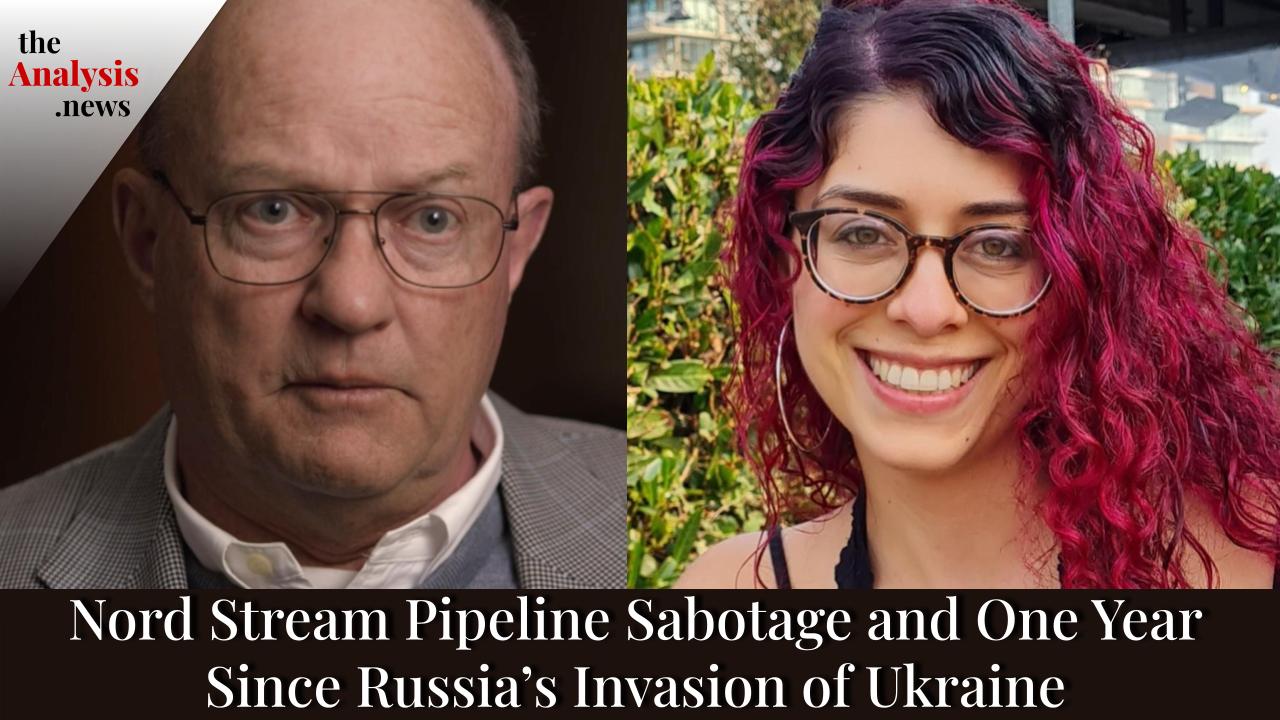


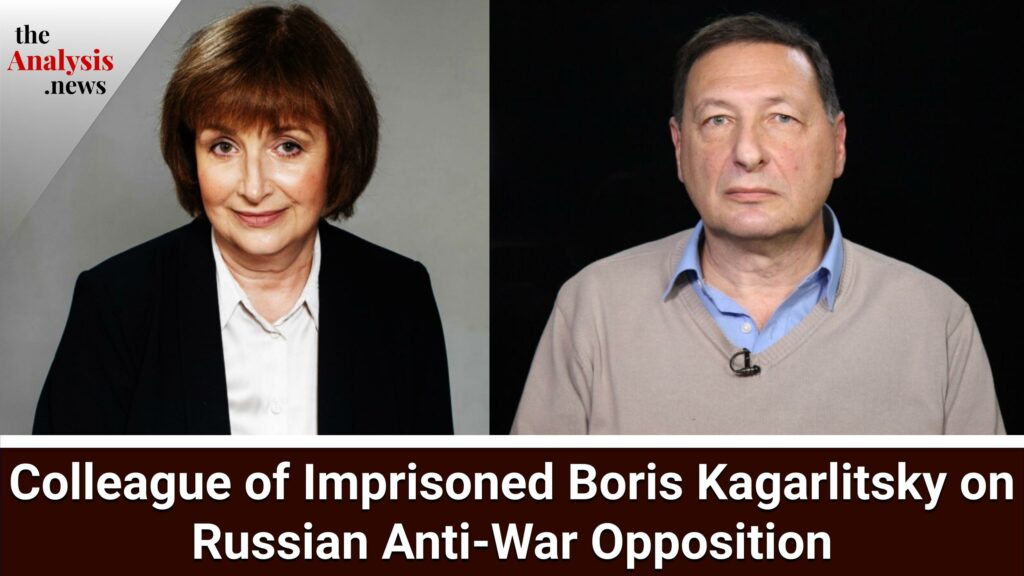
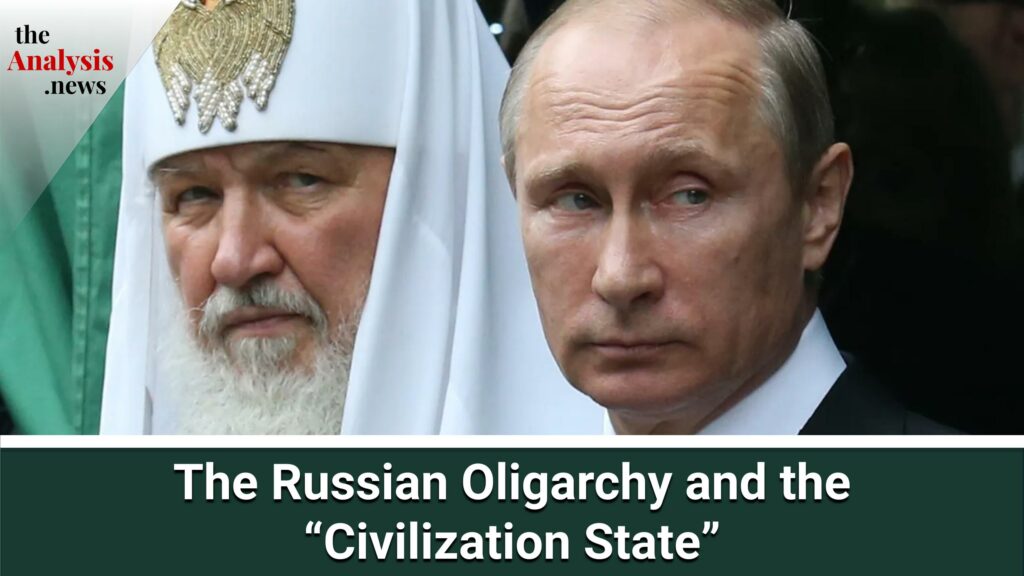
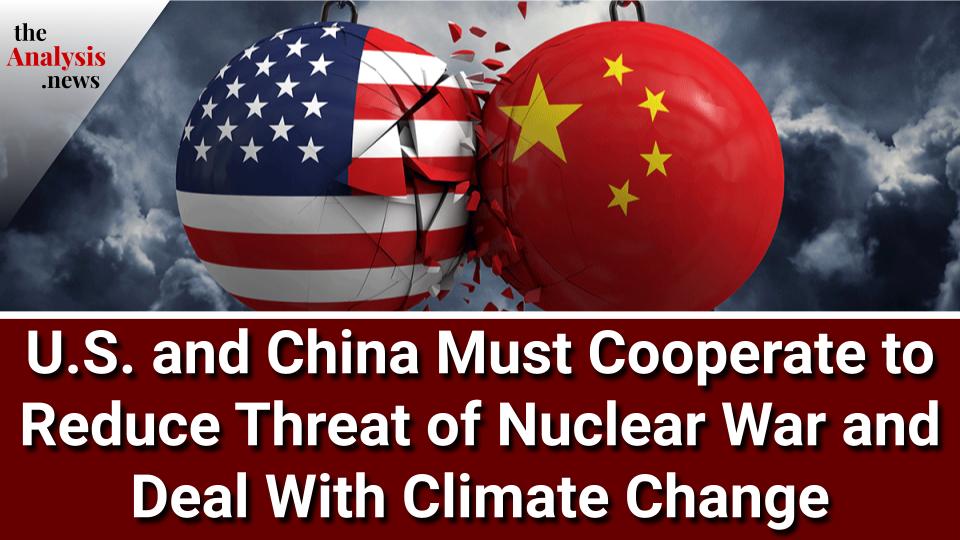
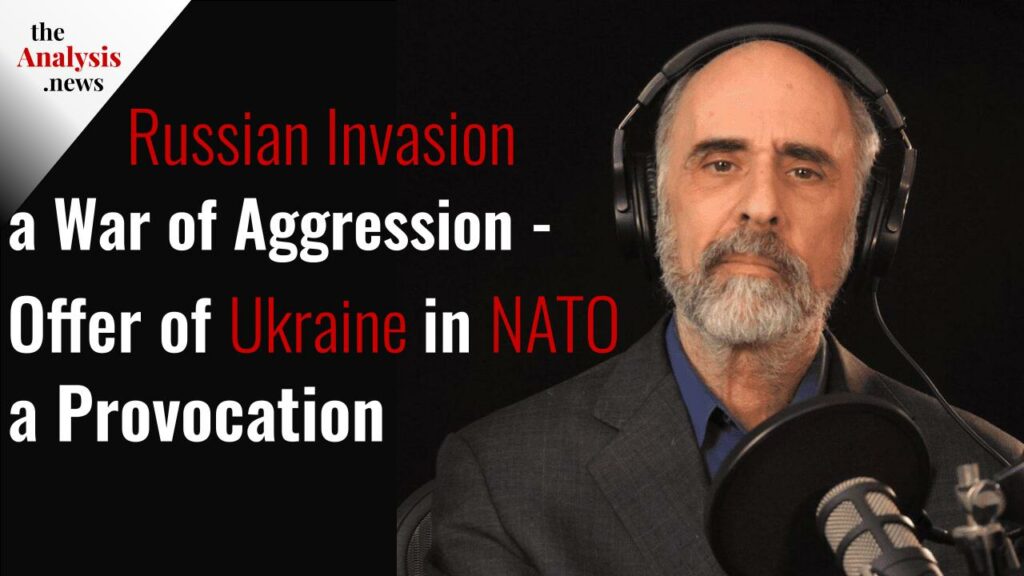
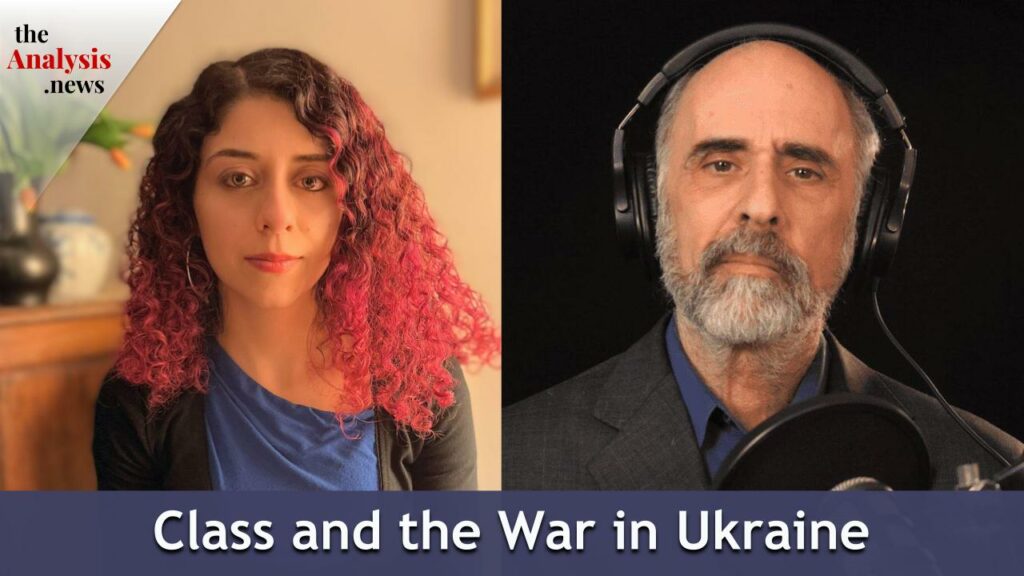
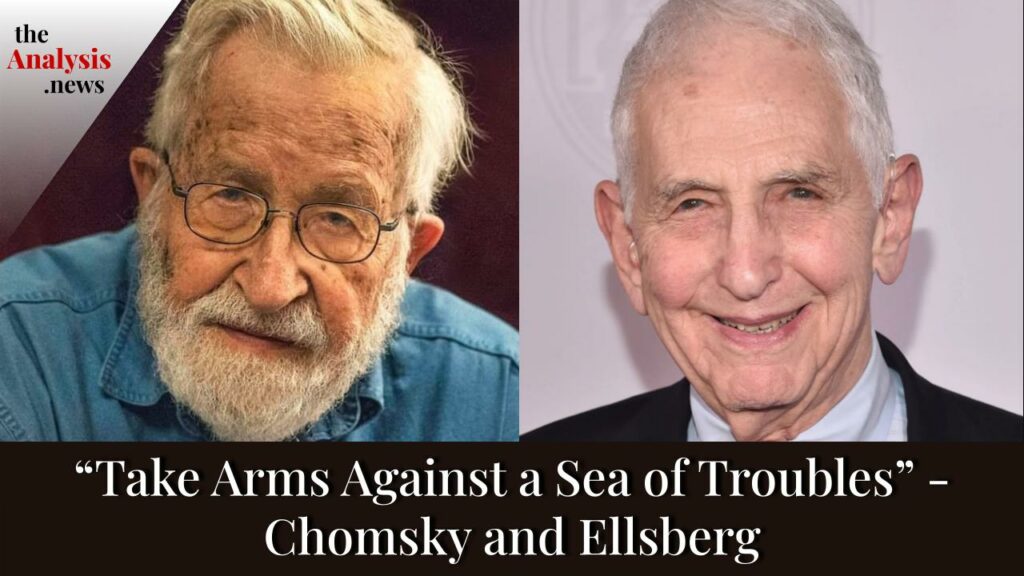
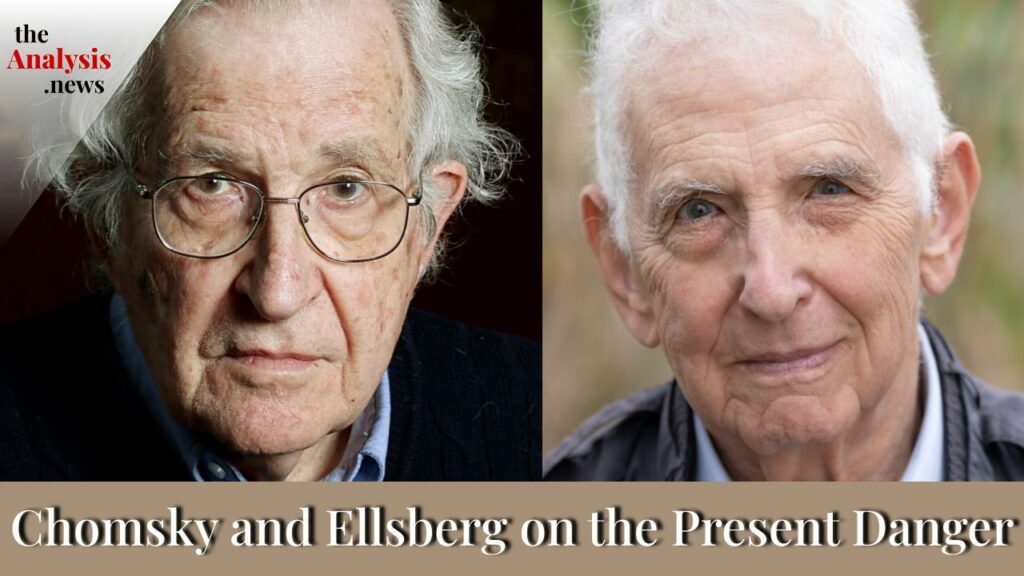
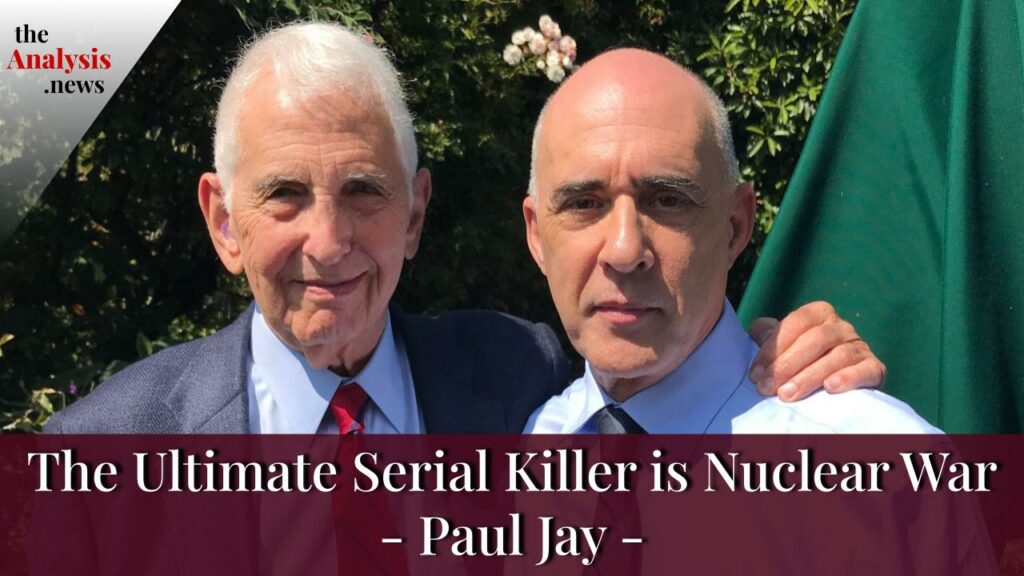

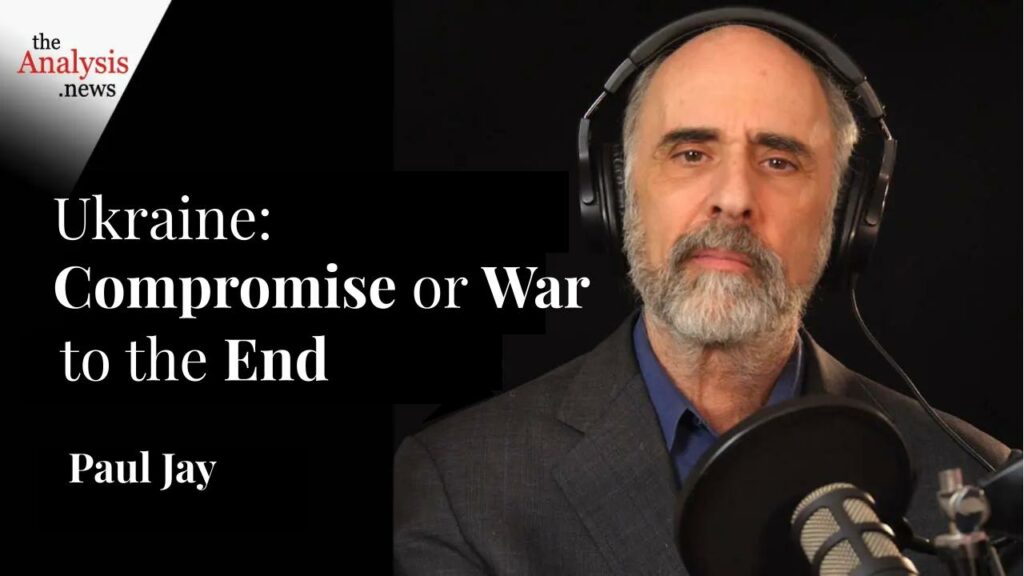
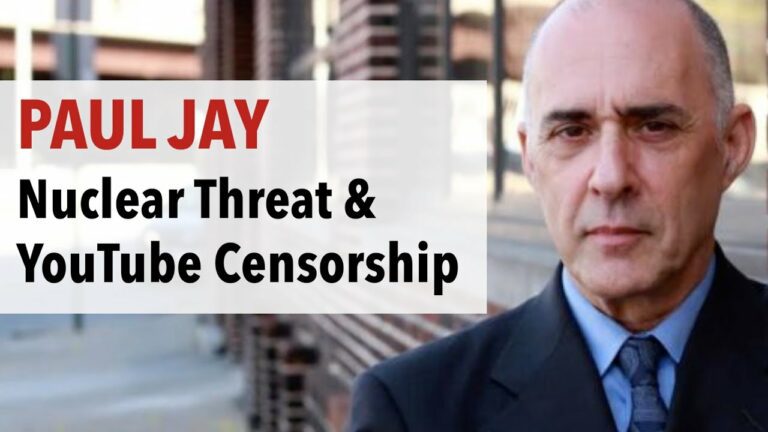
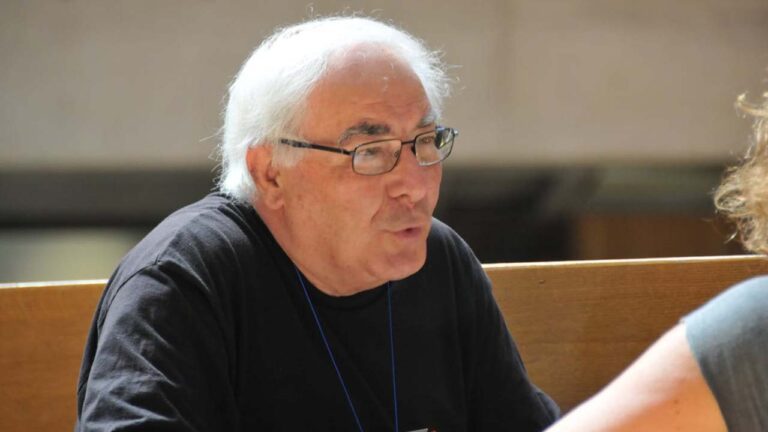
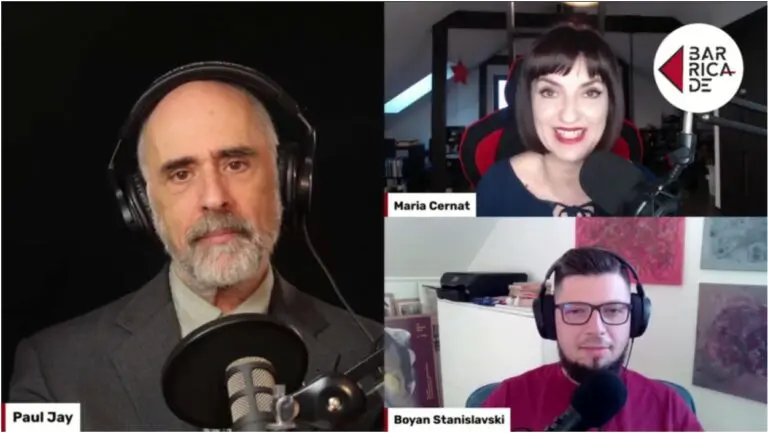
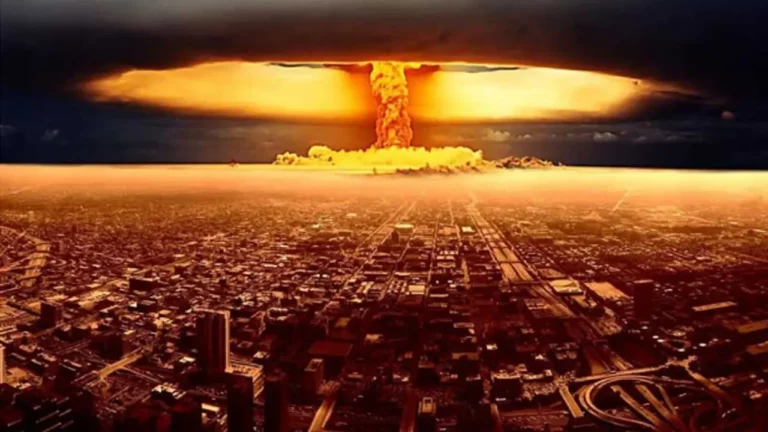
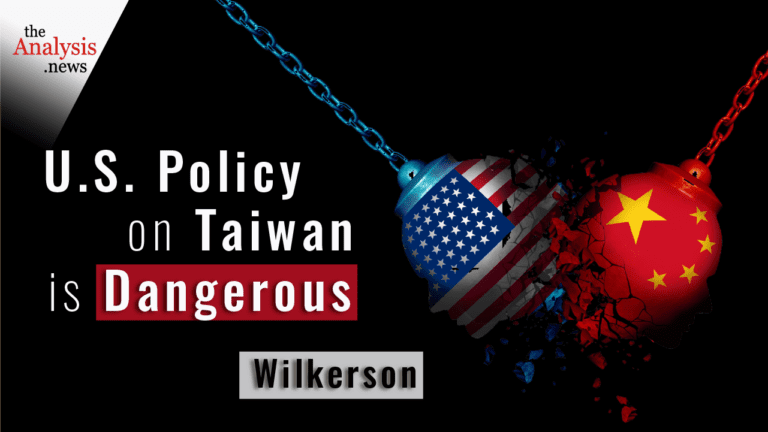

Thank you for having a meaningful discussion about this issue!
Three (and a half) things I began to wonder while listening to this are:
Whoever actually DID destroy the pipeline is likely responsible for the energy turmoil much (all) of Europe is experiencing right now. If it was Ukrainians, they might have done previously unimaginable damage to the goodwill Ukraine currently has throughout Europe.
Not a lot of meaningful discussion about repairing the pipeline? I wonder if anyone is interested in insuring a repair effort?
The whole “Rogue Ukrainians” narrative has a “Here’s a naked Emperor you can pretend has clothes on” smell to it. Nobody really believes it, but things go easier while it remains plausible.
(kinda thin, but fun conspiracy)
Russia did it intending to blame Ukrainians, and hoping to say “look how we fixed it” before winter -but a Tom Clancy novel intervened.
F.Y.I- According to Wikipedia, Nord Stream 2 declared bankruptcy 6 months before massive “leaks” were discovered -IIRC.